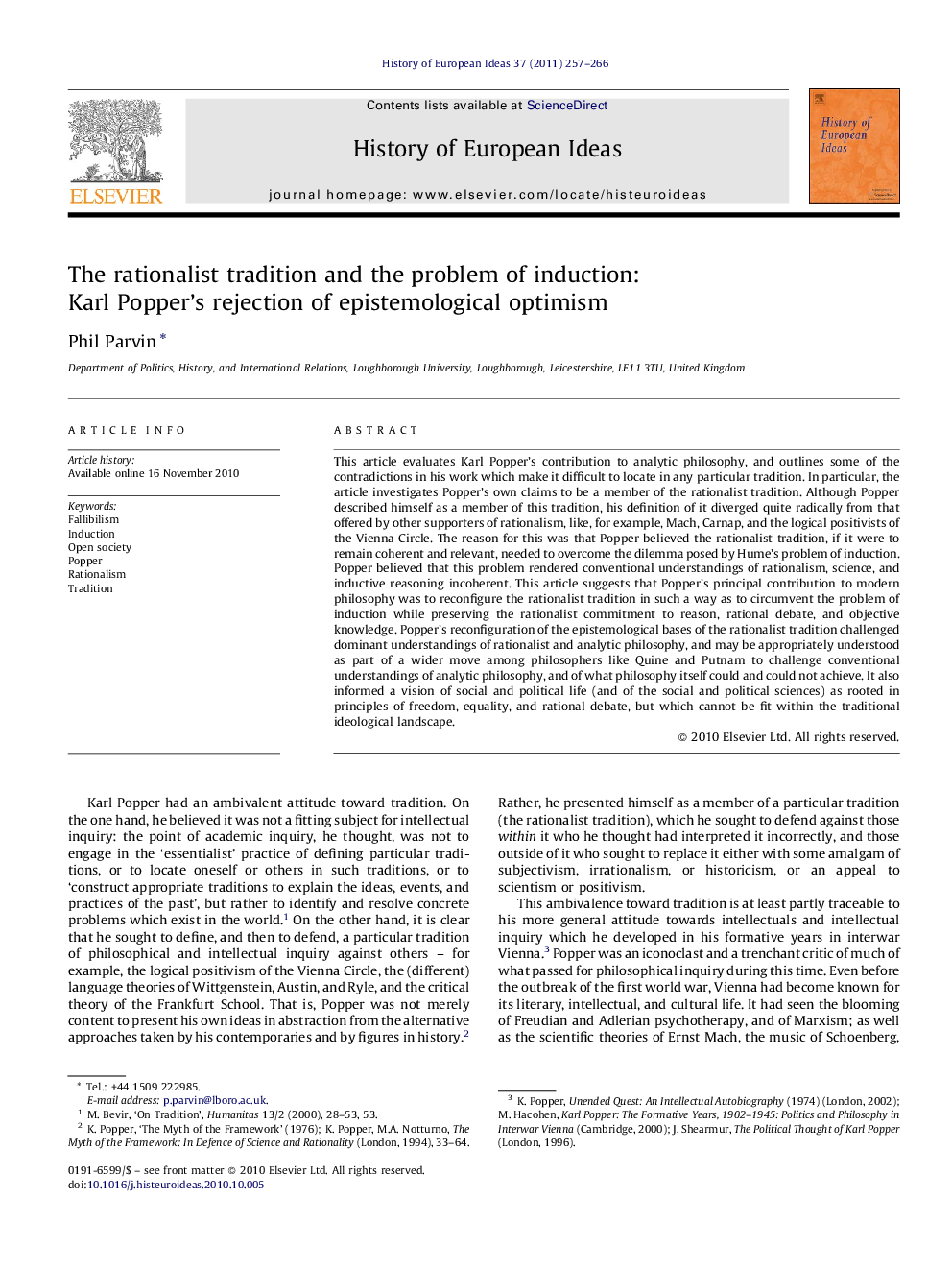| Article ID | Journal | Published Year | Pages | File Type |
|---|---|---|---|---|
| 1158962 | History of European Ideas | 2011 | 10 Pages |
This article evaluates Karl Popper's contribution to analytic philosophy, and outlines some of the contradictions in his work which make it difficult to locate in any particular tradition. In particular, the article investigates Popper's own claims to be a member of the rationalist tradition. Although Popper described himself as a member of this tradition, his definition of it diverged quite radically from that offered by other supporters of rationalism, like, for example, Mach, Carnap, and the logical positivists of the Vienna Circle. The reason for this was that Popper believed the rationalist tradition, if it were to remain coherent and relevant, needed to overcome the dilemma posed by Hume's problem of induction. Popper believed that this problem rendered conventional understandings of rationalism, science, and inductive reasoning incoherent. This article suggests that Popper's principal contribution to modern philosophy was to reconfigure the rationalist tradition in such a way as to circumvent the problem of induction while preserving the rationalist commitment to reason, rational debate, and objective knowledge. Popper's reconfiguration of the epistemological bases of the rationalist tradition challenged dominant understandings of rationalist and analytic philosophy, and may be appropriately understood as part of a wider move among philosophers like Quine and Putnam to challenge conventional understandings of analytic philosophy, and of what philosophy itself could and could not achieve. It also informed a vision of social and political life (and of the social and political sciences) as rooted in principles of freedom, equality, and rational debate, but which cannot be fit within the traditional ideological landscape.
